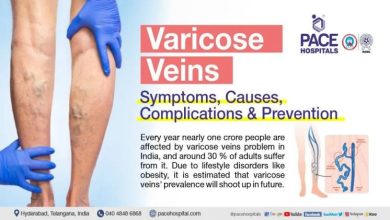6 Signs It’s Time You Should Visit A Cardiologist Sooner

Even though the heart is a hardworking muscle that performs essential bodily functions, it’s still at risk for various health conditions. Cardiovascular diseases are very common and claim one in every three lives in the United States. The worst thing is that you may have a cardiovascular condition without knowing. However, these conditions are treatable, and Dr. Rishin Shah can help you overcome your situation regardless of its severity.
Cardiologists are experts who specialize in diagnosing and treating cardiovascular conditions. Mostly, cardiologists address problems such as heart attacks, palpitations, elevated blood pressure, venous disease, irregular heartbeats, and valve abnormalities. If you’re wondering when to visit a cardiologist, here are six crucial signs to look out for.
1. High blood pressure
Hypertension is a common condition that forces your blood against the walls of the arteries, which can give birth to severe complications like heart disease and vein disorders. Your blood pressure is usually determined by the amount of blood your heart pumps against the resistance to blood flow in your arteries. Even though you can have high blood pressure without knowing, getting checked often can significantly help. If your blood pressure is constantly high, visiting a cardiologist sooner is in your best interest.
2. Presence of alarming symptoms
It takes much time to comprehend that you’re suffering from a cardiovascular condition. However, visiting a specialist cardiologist can help you detect the warning signs of these life-threatening conditions. While cardiovascular disease can prove numerous symptoms, you should be concerned about chest discomfort, shortness of breath, syncopal attacks, dizziness, and fatigue. Also, don’t overlook an irregular heartbeat, which could signify a serious heart condition. Nonetheless, ensure you visit your cardiologist when you identify any abnormal changes in your cardiovascular system.
3. Diabetes symptoms
Generally, there is a special correlation between cardiovascular conditions and diabetes, as individuals with diabetes are more likely to develop cardiovascular diseases. The high blood sugar levels damage the arteries in your body, making them susceptible to blockages.
Furthermore, diabetes can cause blood vessels and nerve damage, thus making it difficult for your cardiovascular system to perform effectively. Therefore, if you have diabetes, it’s high time that you visit a cardiologist for evaluation, treatment, and prevention care.
4. High cholesterol
When your cholesterol levels exceed the limit, you risk developing heart disease, stroke, and other life-threatening medical conditions. You should, therefore, assess your cholesterol levels often to determine whether you’re at risk. Visiting your cardiologist can help manage your cholesterol levels and lower your risk of severe complications.
5. Smoking
Tobacco is a significant risk factor for cardiovascular conditions. Smoking weakens your cardiovascular system and makes you more susceptible to heart problems and venous disease. Therefore, seeing a cardiologist if you smoke tobacco or have a smoking history is essential.
6. Family history
Certain types of cardiovascular conditions have a significant genetic component. You risk developing cardiovascular conditions if you have a family history of such conditions. If conditions like heart attack, venous disease, and stroke run in your family, don’t hesitate to consult a cardiologist.
It’s no secret that an impact on your cardiovascular health affects your overall well-being. Therefore, it is critical to prioritize your health and seek medical intervention to prevent severe health complications.
Furthermore, one of the top ways to manage cardiovascular conditions is to catch early signs. Don’t wait until cardiovascular conditions affect your wellness when your cardiologist can help. Schedule your appointment today!




